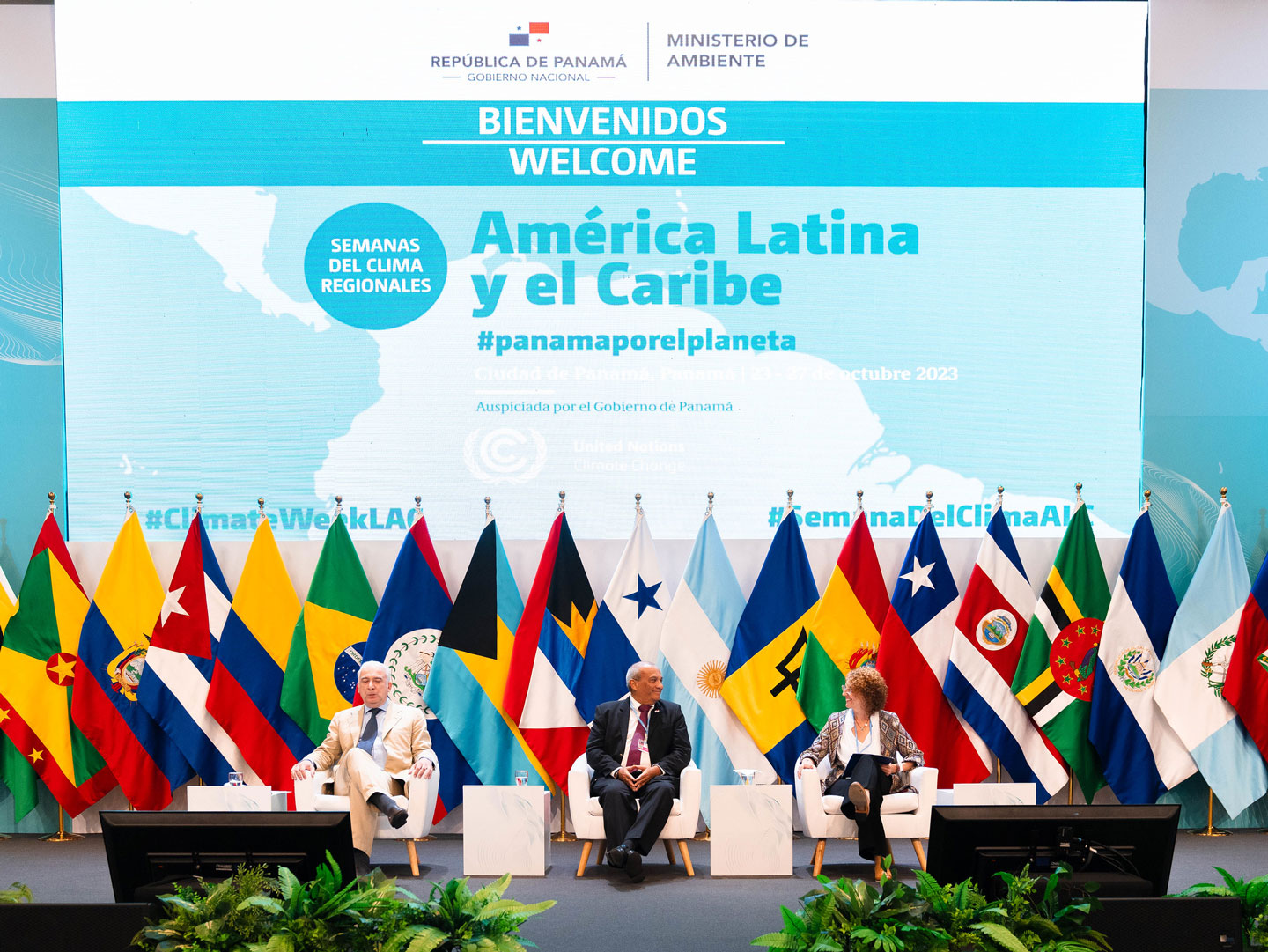Latina America and the Caribbean
Climate Week 2023
Panama City, Panama | 23-27 October 2023
Hosted by the Government of Panama

The Latin America and the Caribbean Climate Week (LACCW) is an annual event that brings together leaders from governments, businesses, international organizations and civil society to explore ways to reduce greenhouse gas emissions while adapting to the mounting fallout from the climate crisis.
In 2023, LACCW is taking place from October 23 to 27 in parallel with the XXIII Meeting of the Forum of Ministers of the Environment of Latin America and the Caribbean. It is an opportunity to call for decisive change and accelerate progress before COP 28 in Dubai and the conclusion of the first Global Assessment.

LACCW 2023 is organized into four systems-based tracks, each focusing on specific themes:
Energy systems and industry
During the LAC Climate Week 2023, member states will launch the Green Jobs for Youth Pact in the LAC region, an initiative introduced by UNEP (via GO4SDGs), ILO and UNICEF during Stockholm+50. This event will showcase the Pact’s potential to accelerate progress to keep the 1.5ºC trajectory reachable. Attendees will be presented with effective strategies and case studies, emphasizing the significance of green jobs and youth skills development for gender-responsive just transitions. The event will also result in better understanding of circularity approaches in high impact sectors such as food and plastics, simultaneously delivering multiple benefits, including job creation, climate stability and youth entrepreneurship.
Coming soon, find the video of the session here.
This event will discuss strategies for the involvement of the private sector in climate action with concrete tools such as Long-Term Strategies (LTS)) to materialize short, medium, and long-term commitments grounded in business realities and aligned with the NDCs.
Coming soon, find the video of the session here.
Cities, urban and rural settlements, infrastructure and transport
This session will showcase cutting-edge conservation solutions where vibrant ecosystems and pristine waterways become the lifeblood of resilient urban communities. Esteemed experts from the Dominican Republic, Colombia, Panama and the USA will delve into the interdependence between natural and urban ecosystems, illuminating the significance of local wisdom and kingship in conserving and resas a means toring our natural environments.
This session will identify ways to improve urban mobility as well as scale and speed up climate ambition which can chart the way for fulfilling the Paris Agreement’s key goals with more and better public transport and active mobility aligned NDCs from the region. It will share the latest regional best practices alongside innovative actions and solutions that should be adopted as a matter of priority to build momentum ahead of COP28 and contribute to the conclusions of the first Global Stocktake.
This session aims to discuss current Nature-based Solutions approaches to adapt and mitigate the converging resilience challenges of climate change and urbanisation. We will look at the perspectives of governments, civil society, practitioners, academy and businesses to promote the integration and implementation of NbS through innovative regulatory, governance and financing mechanisms, and offer insights into opportunities for future work with focus on urban coastal areas.
This session will provide a platform for dialogue and collaboration among cities, regions, businesses and various non-state actors committed to enhancing urban resilience in Latin America and the Caribbean through the implementation of nature-based solutions, innovation and technology. Also, will provide a platform for non-state actors’ leadership to showcase concrete examples of urban climate resilience in LAC and the advancement of the Sharm el-Sheikh Adaptation Agenda implementation across the Human Settlements and Infrastructure Systems and the work of Race to Resilience partners and members.
Coming soon, find the video of the session here.
This workshop-type space aims to promote reflection among peers about the climate goals established within the NDCs in Latin American and Caribbean countries and their relevance and applicability in local contexts (cities). It will discuss the inclusion of a broader range of measures beyond modal shift and climate considerations. The goal is to address gaps such as various forms of gender discrimination and violence in transportation, as well as full and equitable representation and participation of all women and girls in decision-making processes in a sector traditionally dominated by men.
Coming soon, find the video of the session here.
Convened by ICLEI, IUCN and UNEP, the event aims to bring together projects and initiatives working on NbS for adaptation in the urban areas in the region to share experiences and promising practices, and foster constructive multi-stakeholder dialogues to jointly define solutions and recommendations for greening the cities and mainstreaming NbS for adaptation in urban areas showcasing the experience of city-to-city cooperation.
Coming soon, find the video of the session here.
The event will showcase experiences from LAC countries developing different climate finance instruments and enabling conditions from national to local levels to understand the needs to foster climate finance in the region. The objective is to share innovations, lessons learned, experiences and partnerships to promote access to climate finance in the region, while addressing the specific challenges in each country. Facilitating this exchange, can bring opportunities for collaboration, while avoiding duplication of efforts for climate finance in the region and contribute to a better understanding on financial needs that need to be incorporated in the Global Stocktake discussions on ways to improve access to finance.
Coming soon, find the video of the session here.
Through roundtables participants will explore topics such as sustainable public transport, inclusive infrastructure, vehicle electrification, new technologies, all of which are aimed at achieving more equitable and zero-emission mobility. The event will also provide valuable opportunities for networking and collaboration among participants, fostering strategic partnerships and synergies between the public, private and civil society sectors.
Coming soon, find the video of the session here.
This session will emphasize the pressing need for cities to adapt to climate change and will showcase the transformative potential of Nature-based Solutions (NBS) in fostering gender and social inclusivity and achieving the realization of human-rights.
Coming soon, find the video of the session here.
Land, ocean, food and water
The event aims to foster sharing of knowledge and best practices to overcome the barriers to the uptake of EbA in the agriculture sector as identified in “Harnessing Nature to Build Climate Resilience” report (UNEP, 2022). It will explore the experiences of the grantees of the Global EbA Fund in the region, bringing together diverse stakeholders implementing the projects in Mexico, Honduras and Guatemala. The session will focus on projects implemented in different ecosystems and addressing various barriers to EbA.
Coming soon, find the video of the session here.
Major land-use sectors such as forestry and agriculture play a large role in national emissions, biodiversity conservation, and human well-being. Conservation of land for food along the food chain plays a major role in addressing climate change as well as securing sustainable food systems. Further, the transition to sustainable food systems in the LAC region benefits from enhanced urban and peri-urban agriculture practices. This session, therefore, explores the nexus of sustainable land management, food security, and climate change, focusing on opportunities for transformative adaptation and long-term resilience in the LAC region.
This session aims to promote programs, funding and practices towards adaptation that is increasingly owned by local actors. It will explore challenges and opportunities in complying with the principles of Embracing Locally-led Adaptation (LLA), discuss promising practices to promote them and showcase examples and experiences of LLA implementation in the Latin America region. The session will take the form of a solution-oriented interactive discussion between multiple-stakeholders.
Coming soon, find the video of the session here.
This session will explore the links between sectoral efforts to build resilience through water management, including information generation and its uptake to feed into decision making in the agriculture, health, and tourism sectors in the in Latin America and the Caribbean.
Coming soon, find the video of the session here.
This event will feature case studies from LAC countries that are developing nesting approaches for REDD+, including challenges to ensure high environmental integrity and social inclusion, and consistency in baselines, MRV and safeguards systems, among others. There will also be a discussion on challenges and barriers to finance for forests and climate, such as those related to carbon accounting, legal frameworks, governance, and risk management. Some key considerations and recommendations will be provided to support the implementation of effective nesting approaches and for scaling up high-integrity finance.
Coming soon, find the video of the session here.
Societies, health, livelihoods, and economies
This session will provide a platform to discuss the challenges, solutions, and recommendations related to climate change impacts on health and wellness. The opportunity is afforded for a recommitment to regional solidarity within LAC to individually and collectively strengthen actions to better protect our health, that of future and unborn generations, as well as the health of our planet.
This session will explore how climate change affects people unequally and exacerbates vulnerabilities among specific groups including children and youth, women, local communities, Indigenous Peoples, and displaced populations.
This session will focus on such new and innovative climate finance for accelerating the LAC systemic and structural transformation of economic systems. The region is particularly vulnerable to the impacts of climate change, but is simultaneously taking leaps with innovative financial mechanisms such as debt-for climate swaps and carbon markets, and securing the enabling conditions related to institutionalization, transparency, and data-availability. Therefore, innovative financial mechanisms, and the way these can be adapted to the regional context must be explored.
This event will highlight key messages from the Circularity Gap Report for Latin America and the Caribbean (LAC), underscoring its data-driven insights on the substantial impact of circular economy practices on reducing greenhouse gas emissions. In addition, it will delve into the approaches taken by countries in the region as they integrate circular economy principles into their broader climate strategies. I will highlight how the implementation of circular strategies in key sectors in the LAC region can unlock new opportunities for value creation and growth and also address and mitigate the challenges of climate change, biodiversity loss, waste and pollution.
Coming soon, find the video of the session here.
The session aims to engage diverse stakeholders including civil society organizations, governments and international organizations to discuss experiences in assessing climate-induced losses and damages, and highlighting progress around the region.
Coming soon, find the video of the session here.
This session will allow the exchange of experiences, information, lessons learned and/or the adoption of good practices about strategic policy decisions including institutional arrangements that are required for the authorization, transfer and tracking of ITMOS under Article 6. It is also a presentation window of different initiatives and international cooperation that are available to ensure Article 6 Readiness and minimum requirements for developing countries’ participation.
Coming soon, find the video of the session here.
The Taxonomies of Sustainable Finance are a system to classify economic activities and assets that contribute to achieving a country’s environmental goals and commitments. The objective is to support investors and financial institutions in identifying sustainable investment opportunities. Through this event, we seek to understand the progress of the region in the development and implementation of its Taxonomies of Sustainable Finance.
Coming soon, find the video of the session here.


